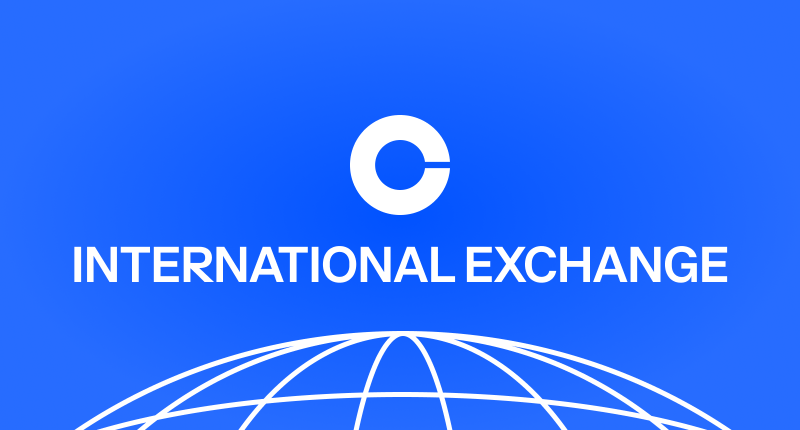Coinbase, the world’s largest crypto exchange, has announced the launch of Coinbase International Exchange, an international derivatives exchange for institutional crypto traders outside the US. This comes as Coinbase is currently locking horns with the US Securities and Exchange Commission (SEC), and is eyeing an expansion into the crypto derivative market overseas to diversify its business.
In a blog post, Coinbase informed that the new International Exchange will let institutional users (who are based in eligible jurisdictions outside of the US) to trade in digital assets – perpetual futures, to be more precise. It is unknown whether the platform will come to retail customers at a future date. The development also comes on the heels of Coinbase getting regulatory approval from the Bermuda Monetary Authority (BMA) – something that Coinbase noted in the blog post. It added that its new International Exchange will initially offer Bitcoin and Ethereum perpetual futures only.
The move marks Coinbase’s expansion into the international crypto derivatives market and comes as the crypto market is still recovering from the previous year. The crypto market took a particularly nasty turn after the downfall of Sam Bankman-Fried’s FTX, which once ranked among one of the largest global cryptocurrency exchanges. Its bankruptcy triggered a brutal sell-off in the market, as well as reduced liquidity from the crypto market. Bitcoin lost over 60% of its value in 2022, while the drop in the total market capitalization of the crypto market amounted to trillions.
Traders can bet on the price of bitcoin and ether via perpetual futures contracts on the International Exchange, with up to five times leverage, and Coinbase noted that that trading has already begun and all trades will settle in the stablecoin USDC. For institutional clients in eligible, non-US jurisdictions, the Coinbase International Exchange offers direct access trading via API as well.
For those who are unaware, perpetual futures are a type of derivative contract commonly used in the cryptocurrency market. They allow traders to bet on the future price of a cryptocurrency without actually buying or selling the underlying asset. Perpetual futures contracts are similar to traditional futures contracts in that they require the buyer to take a long or short position on an asset at a predetermined price and date in the future. However, perpetual futures do not have an expiration date, meaning that the contract can be held indefinitely.
“Building out a global perpetual futures exchange for digital assets will help support an updating of the financial system by making Coinbase’s trusted products and services more accessible to users of digital assets who live outside of the US. As more and more markets are moving forward with regulatory frameworks to become crypto hubs, we believe the moment is right to launch this international exchange,” Coinbase noted in its blog post, adding that while it was “committed to the US,” other countries were “increasingly moving forward with responsible crypto-forward regulatory frameworks to strategically position themselves as crypto hubs. We would like to see the US take a similar approach instead of regulation by enforcement which has led to a disappointing trend for crypto development in the US.”
This “disappointing trend” is not hard to comprehend, given that Coinbase has been engaged in a tussle with the SEC over the past times. Last month, it asked a federal court to compel the SEC to respond to its request for clearer regulations, including answers to specific questions that would provide “clarity and certainty regarding the regulatory treatment of digital asset securities.”
The Tech Portal is published by Blue Box Media Private Limited. Our investors have no influence over our reporting. Read our full Ownership and Funding Disclosure →





